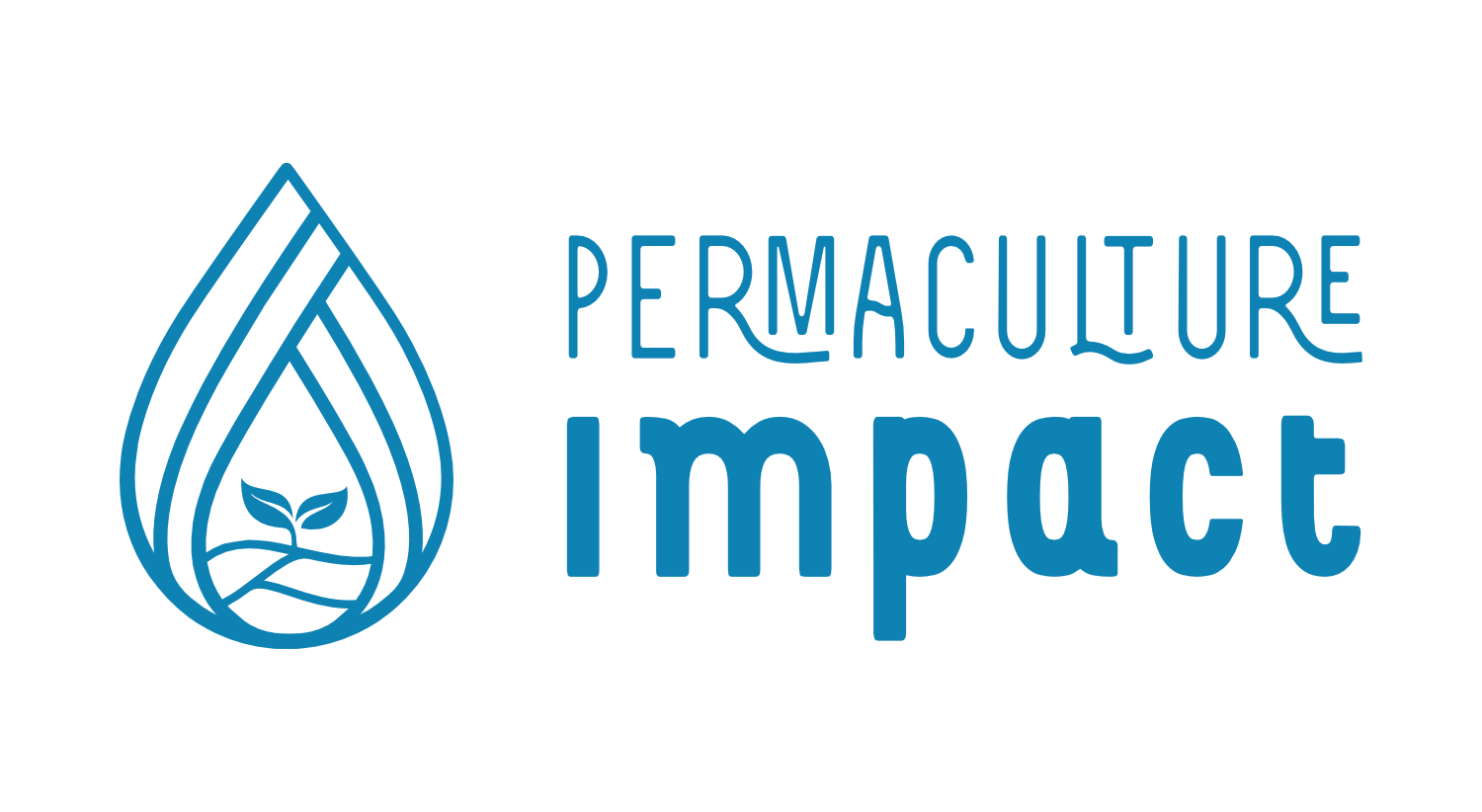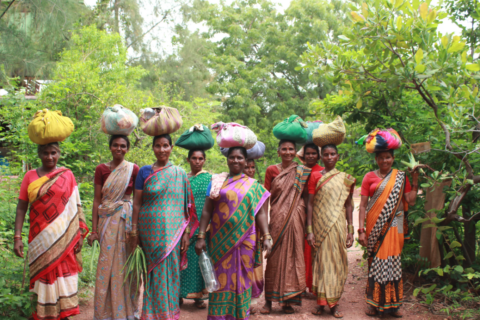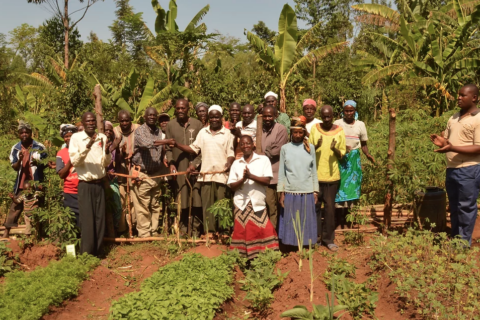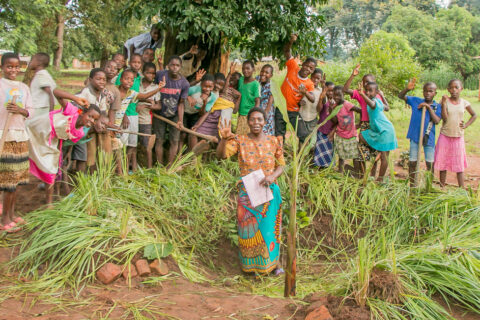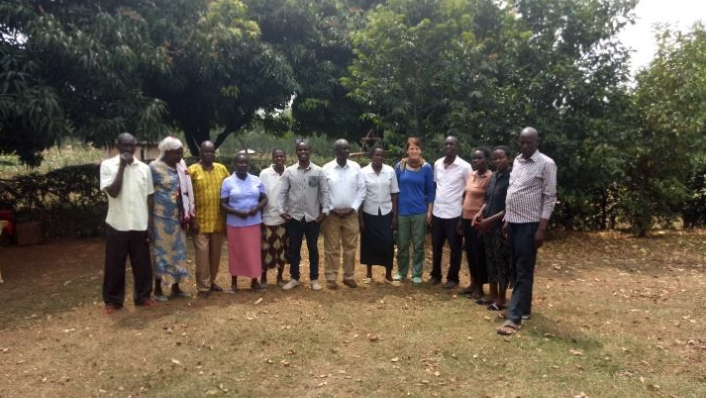









Community Mobilization for Regenerative Agriculture (C-MRA) with permEzone
Kenya - Kakamega County at Kisa West Ward and Kisumu County at Kisumu West Ward
Description of organisation and its work:
Community Mobilization for Regenerative Agriculture (C-MRA) was founded by Reagan Okoth and Paul Omollo to help farmers in Migori and Homa-bay county in Kenya to produce enough food and solve food security and climate change menace that has hit the region. C-MRA have been working with permEzone on a project ‘to integrate permaculture practices with mobile phone information platform for smallholder farmers at Asumbi in Homabay County.
Paul says:
“Our organization trains communities on permaculture practices using the lead farmer approach. Here farmers are recruited then lead farmers selected from the recruits. The selection of lead farmers has a criteria where the lead farmer must meet i.e. must be proactive, willing to share knowledge with other members and neighbours, must be willing to set aside a potion of their land for demonstration purpose, must be friendly to other members etc., the lead farmers are then trained on permaculture in a participatory manner i.e. curriculum development- here the beneficiaries are also involved in the process of tailor making the curriculum to suit them, because each location is unique in terms of climatic aspects, social & cultures. Participatory monitoring and evaluation of the activities hence developing targets & indicators collectively. The lead farmers are then trained on full PDC and expected to develop and design their own farms into model farms. Then the lead farmers are mandated to train other farmers in what we call peer to peer extension work and at the same time C-MRA staff also offer extension work to the lead farmers.
One major challenge that we have faced is that as an organization we do not have our own site where we can establish a model farm with practicals which demonstrate different permaculture techniques hence relying on the beneficiaries model farms. We also need to host trainings and this can be as an income generating activity for the organization to ensure sustainability. Another challenge is lack of adequate funds to up-scale the program to reach out to more beneficiaries.”
Who is involved?
The first phase of the project (2018-2020) reached 400 farmers in Homa Bay county. They are targeting another 400 farmers in this current phase. Paul works with a team of other 2 field staff assisting in training and extension work.
Permaculture Impact course taken: Change Pathways Mapping
Paul completed the Permaculture Impact Change Pathways Mapping course [LINK to course] in early 2022, during which he produced a theory of change map for C-MRA. He says that he likes the simplicity of his Change Pathways Map i.e. in breaking down complex ideas into simple diagrams that are easy to explain to the community and others.
He also says that his map will make it easier to give presentations about the project, especially to the community who don’t like too much literature. C-MRA will use their map to help with their monitoring and evaluation, by adding some key metrics so that it will show how the project is performing at a glance. He also intends to use the map as part of a funding proposal that they are developing.
